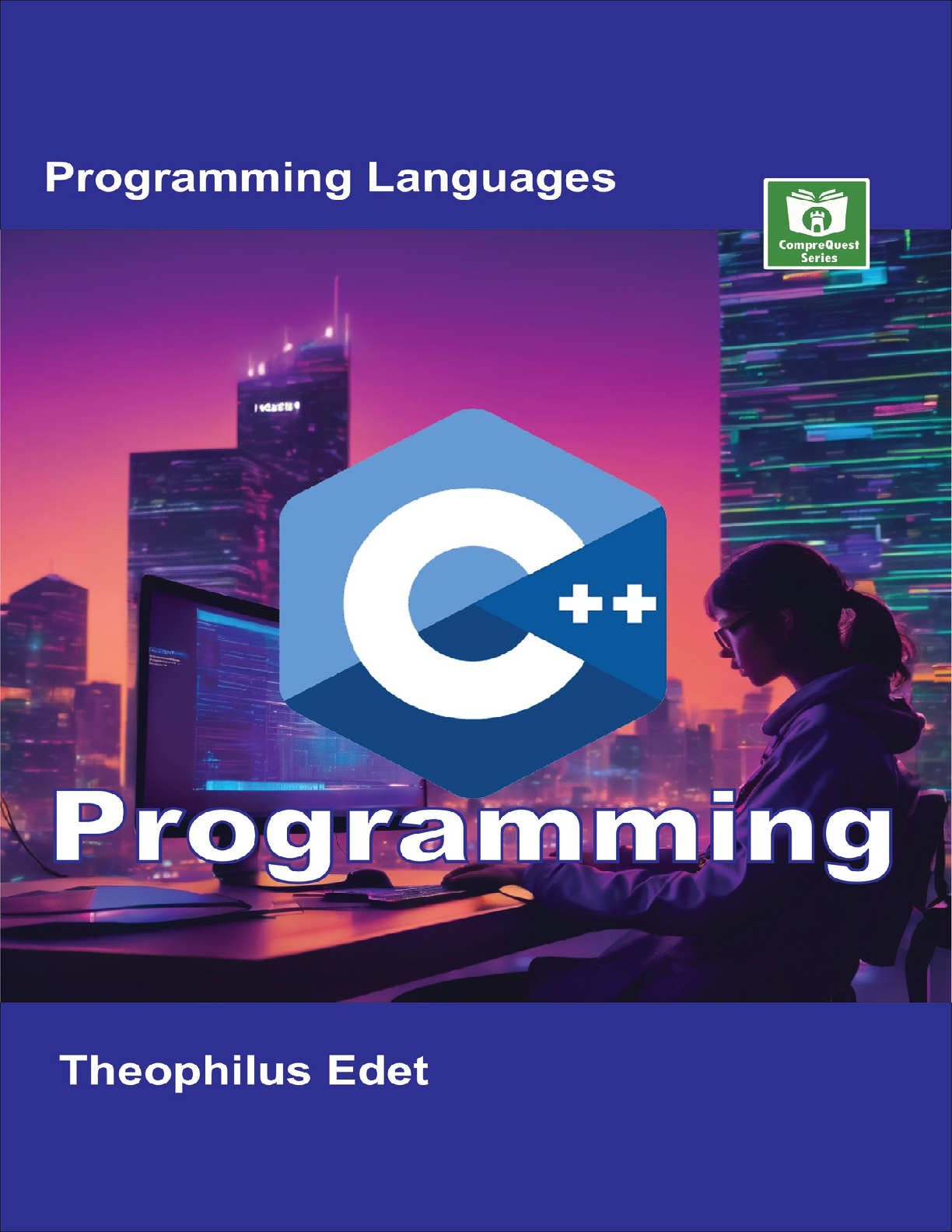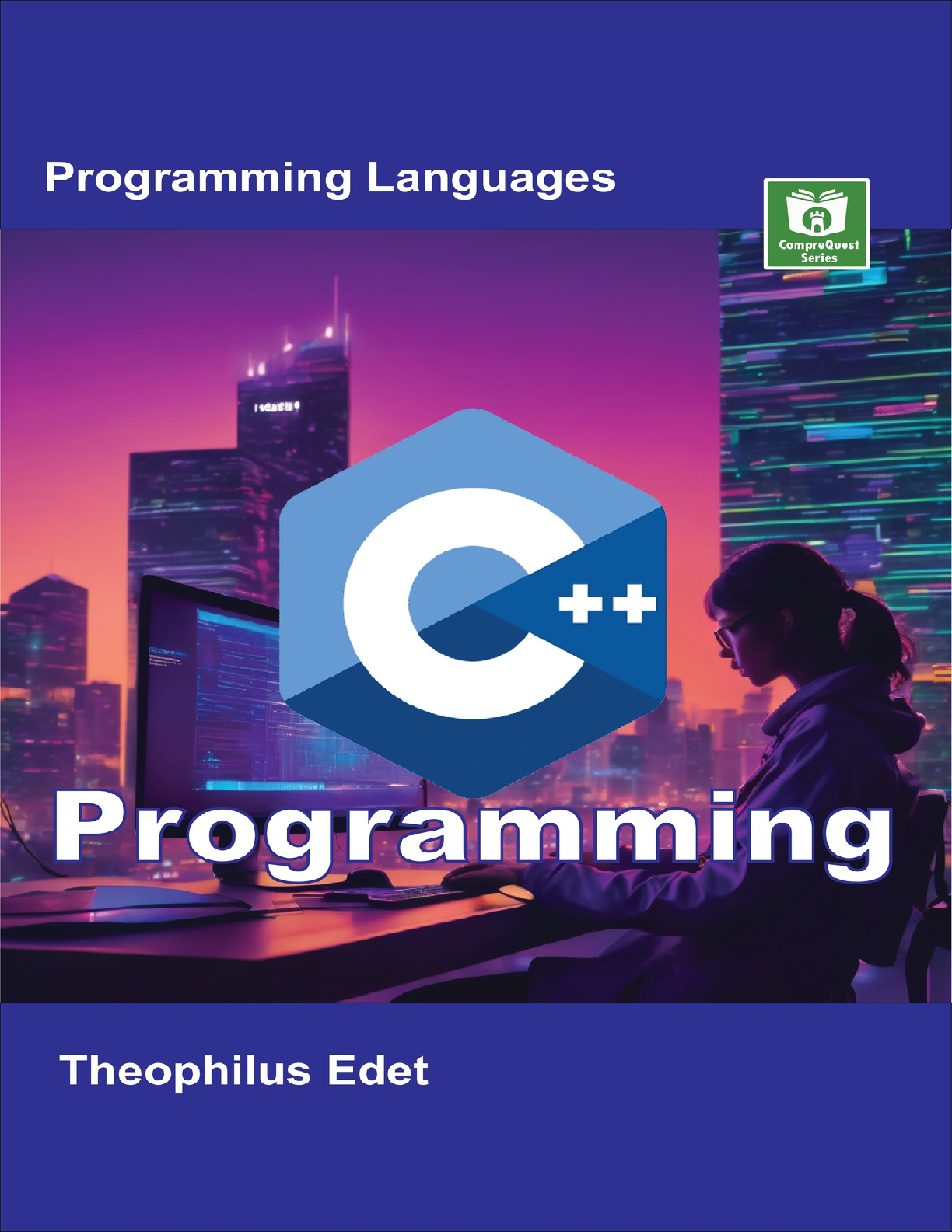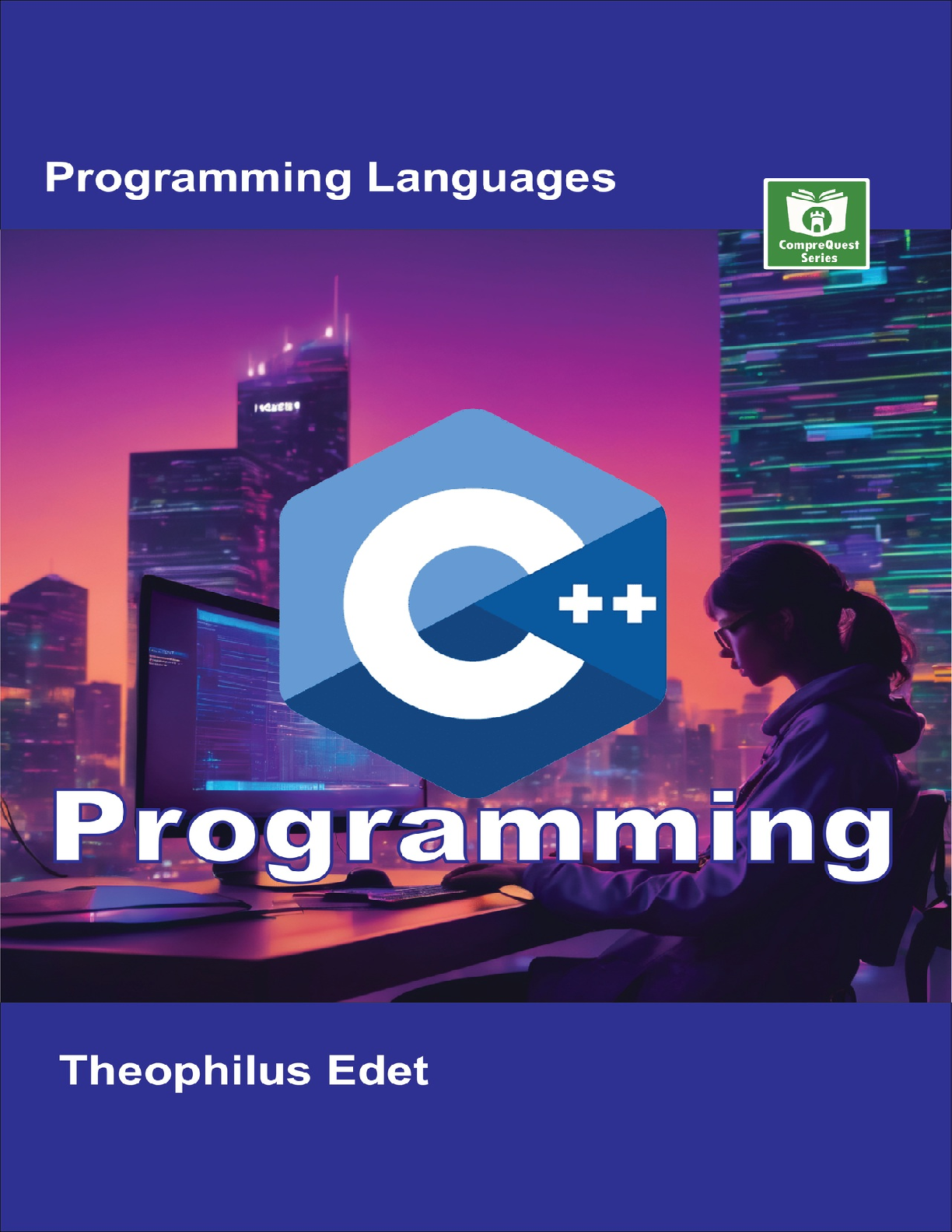Computer Science > PROGRAMMING > C++ Programming (All)
C++ Programming
Document Content and Description Below
C++ Programming C++ Programming Module 1: Introduction to C++ Programming Understanding Programming Concepts Introduction to C++ Language Setting Up Development Environment Your First C++ Prog... ram Module 2: Variables and Data Types Introduction to Variables Numeric Data Types: int, float, double Character and String Data Types Boolean Data Type and Constants Module 3: Functions and Modular Programming Introduction to Functions Defining and Calling Functions Function Parameters and Return Values Function Overloading and Scope Module 4: Conditional Statements and Decision Making Introduction to Conditional Statements if, else-if, and else Statements Switch Statement for Multiple Choices Ternary Operator for Compact Conditionals Module 5: Working with Collections Introduction to Arrays and Their Declaration Accessing and Modifying Array Elements Multidimensional Arrays and Matrices Introduction to Vectors and Dynamic Arrays Module 6: Loops and Repetition Structures Introduction to Loops while and do-while Loops for Loop and Loop Control Statements Nested Loops and Loop Optimization Module 7: Comments and Code Documentation Importance of Comments and Documentation Single-Line and Multi-Line Comments Commenting Best Practices Generating Documentation Using Doxygen Module 8: Enums and Constants Introduction to Enums Defining and Using Enums Enumerated Constants and Scope Enum Class and Type Safety Module 9: Introduction to Object-Oriented Programming Understanding Object-Oriented Concepts Introduction to Classes and Objects Encapsulation and Data Hiding Constructors and Destructors Module 10: Access Control and Member Functions Public, Private, and Protected Access Specifiers Accessors and Mutators (Getters and Setters) Friend Functions for Access Control Static Members and Member Initialization Lists Module 11: Inheritance and Polymorphism Introduction to Inheritance Base and Derived Classes Polymorphism and Function Overriding Virtual Functions and Abstract Classes Module 12: Scope and Lifetime of Variables Understanding Variable Scope and Lifetime Global and Local Variables Static and Dynamic Storage Duration Memory Management and Resource Deallocation Module 13: Exception Handling Introduction to Exception Handling try-catch Blocks and Throwing Exceptions Handling Multiple Exceptions Custom Exception Classes and Best Practices Module 14: File Input and Output Working with Files and Streams Opening and Closing Files Reading and Writing Data to Files Error Handling and File Manipulation Module 15: Pointers and Memory Management Introduction to Pointers Pointer Arithmetic and Pointer Types Dynamic Memory Allocation (new and delete) Smart Pointers and Memory Leaks Prevention Module 16: Strings and String Manipulation Introduction to C++ Strings String Operations and Functions String Formatting and Manipulation Working with C-Style Strings Module 17: Structs and Unions Defining and Using Structs Struct Members and Initialization Introduction to Unions Differences Between Structs and Unions Module 18: Function Pointers and Callbacks Understanding Function Pointers Declaring and Using Function Pointers Callback Mechanisms and Use Cases Using Function Pointers in Libraries Module 19: Namespaces and Header Files Introduction to Namespaces Organizing Code with Namespaces Creating and Including Header Files Avoiding Header File Redundancy Module 20: Type Casting and Conversion Implicit and Explicit Type Conversion Casting Between Numeric Data Types Casting Pointers and References Dynamic Casting and Type Information Module 21: Preprocessor Directives and Macros Understanding Preprocessor Directives Defining and Using Macros Conditional Compilation with #ifdef and #ifndef Using #include and #pragma Directives Module 22: Template Programming Introduction to Templates Function Templates and Type Deduction Class Templates and Specialization Template Metaprogramming Concepts Module 23: Standard Template Library (STL) - Part 1 Overview of the STL STL Containers: Vector, List, Deque STL Iterators and Algorithms Using STL Containers and Algorithms Module 24: Standard Template Library (STL) - Part 2 STL Containers: Stack, Queue, Priority Queue STL Maps and Sets Introduction to Function Objects (Functors) Using STL in Real-world Applications Module 25: Exception Safety and Resource Management Introduction to Exception Safety RAII (Resource Acquisition Is Initialization) Managing Resources in C++ Designing Exception-Safe Code Module 26: Lambda Expressions and C++11 Features Introduction to Lambda Expressions Lambda Capture and Function Types C++11 Features: auto, nullptr, Range-based for Loop Using Modern Features for Cleaner Code Module 27: Multithreading and Concurrency Basics of Multithreading Creating and Managing Threads Thread Safety and Race Conditions Synchronization Mechanisms: Mutexes, Locks, Condition Variables Module 28: File Handling and Serialization Reading and Writing Binary Files Text File I/O and Formatting Serialization and Deserialization Working with JSON and XML Data Formats Module 29: C++ Best Practices and Coding Standards Writing Readable and Maintainable Code Code Formatting and Naming Conventions Avoiding Common Pitfalls and Code Smells Applying Coding Standards and Guidelines Module 30: Debugging and Troubleshooting Introduction to Debugging Techniques Using Debuggers and Profilers Handling Runtime Errors and Exceptions Strategies for Effective Troubleshooting [Show More]
Last updated: 3 months ago
Preview 1 out of 345 pages

Reviews( 0 )
Document information
Connected school, study & course
About the document
Uploaded On
Feb 01, 2024
Number of pages
345
Written in
Additional information
This document has been written for:
Uploaded
Feb 01, 2024
Downloads
0
Views
15




